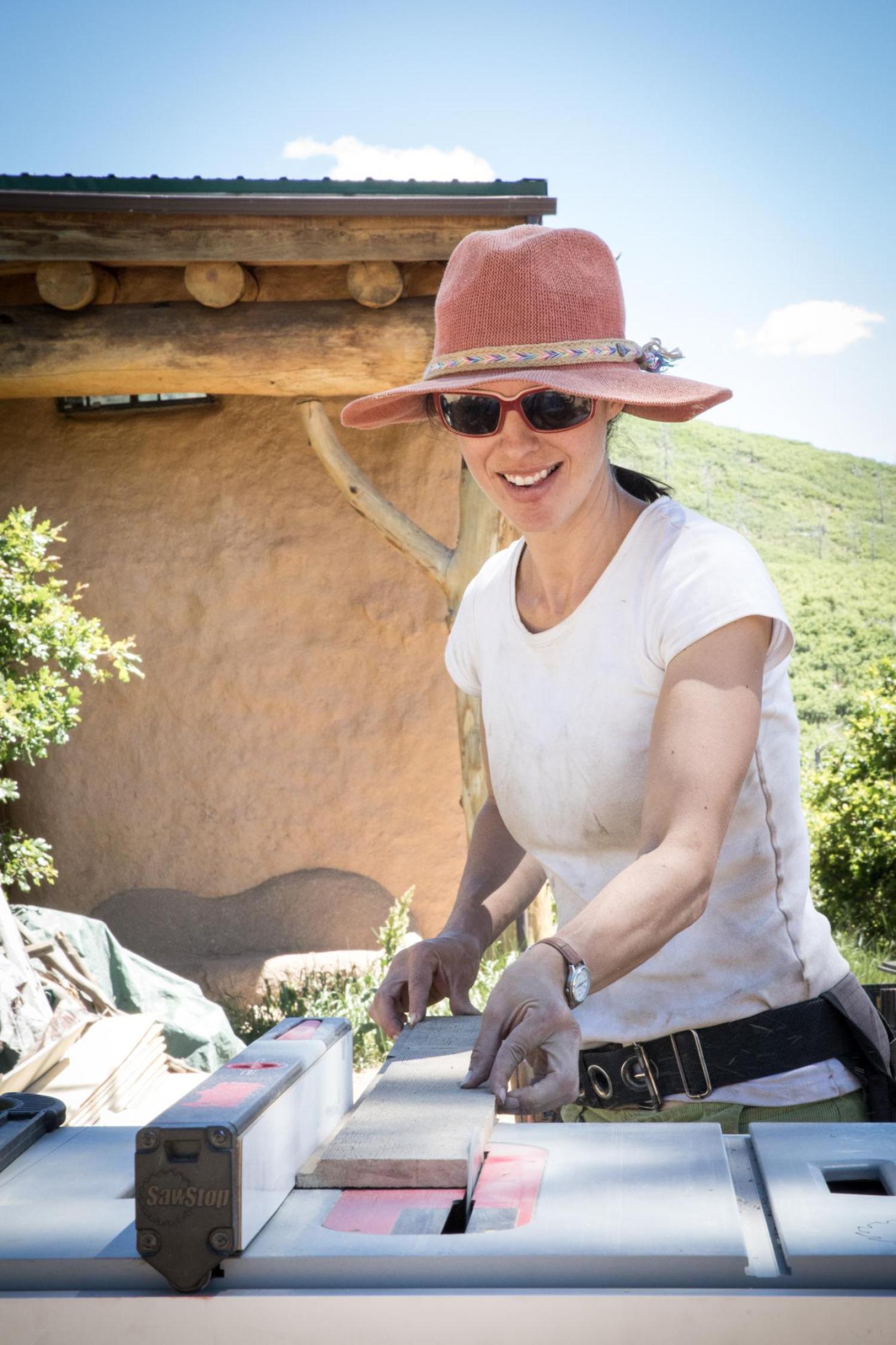Five Questions with Senior Instructor Jade Polizzi

ENVD sophomore Aubrey Prestwich sat down with Senior Instructor Jade Polizzi to get the inside scoop with five questions from the Environmental Design student body.
What makes the ENVD community more unique than other design schools?
I was actually a student here in the 1990s and in 2002 I started teaching at ENVD. I don’t have experience teaching in other design schools, however, when I travel I make a point of visiting design schools and taking tours. I’ve probably toured 30 different design schools and programs. Something I really love about ENVD is that it’s a small program at a large university, everyone knows each other and takes classes with each other. I love how students support each other and how the faculty and advising team supports the students. I feel that we’re really good at helping our students succeed. And, compared to other universities, our work is competitive.
What have you learned while being a college instructor that you didn’t expect to?
I love being surrounded by young people. I am an optimistic person in general, but I think being surrounded by our young optimistic students is really inspiring. What I didn’t expect when I began teaching, was how I would get so attached to each student’s process. I get emotionally attached to their work and I want each one of them to succeed. In a pin-up or a review, students want to make sure that what they are presenting represents the amount of time and effort they put in, but I’m sitting in the back thinking “don’t forget to mention this influence” or “make sure you point to that drawing.” I’m just as nervous as you are.
Other than that, I enjoy watching a student’s progress through life. Even if they don’t continue on the formal design path, I love hearing about former student’s families and life experiences. A couple of my former students are now teaching at other universities, and it’s great to get questions and emails from them. I think with social media its really easy to stay connected and I love that.
What is your favorite class to teach?
I enjoy all of my classes, but my favorite format is the design-build classes. First-year classes are fun because you get to see such great progress from beginning to end and the students know how much knowledge they’ve gained in drafting, modeling and computer skills. Upper-level students have such amazing knowledge and it’s fun to see them take on bigger challenges. But, the design-build classes are so much fun, especially when we go down to New Mexico, and live together for three weeks on-site. We camp together and eat all our meals together. We get to really problem solve together. The projects are so unique and I don’t always necessarily know the best solution, but we’re all working together to make something great. Another benefit is that I get to see who the students really are on the trip. I try not to stereotype my students, but it is easy to think about a student as the one who produces great work or the one who is very intellectual. That all gets stripped away when we spend so much time together and I get to learn a lot about them as people outside of the classroom.
What has been your favorite project to work on so far?
I couldn’t pick a design-build because that wouldn’t be fair, each project is unique and has its successes and challenges. I’d have to say that I really like the second-year studio abstraction project. Students are really happy with their work on the project and it’s challenging. They pour so much of themselves into this project and even though it is typically outside of their standard comfort zone the final output is frame-worthy.
How has travel changed or impacted your perspective on design?
One of the best things you can do as a designer is travel, because the more you see, the more you can draw from when you are designing. Last year I spent 11 months in 18 countries and we visited 121 different museums, cathedrals and monuments, and those just the ones we had to pay for, not the ones we popped our head in or visited from the outside. It’s great to see work that you’ve spent hours studying in books and journals in the flesh and I’m really excited about what I am bringing back from this experience.
Before the trip, I considered myself an environmentalist, but after seeing how many people live on the planet I would say I care about our resources even more. Travel has really shifted my paradigm of what’s important. Looking at the historic structures in Europe and how these spaces are thousands of years old has really made me wonder how we can build more permanently and make our buildings more adaptable for the future. I want people to be inspired to produce things with a high level of craft and construct from great material. Things are so cheap now and we are losing the art of craftsmanship and the desire for permanence.
Describe your teaching philosophy.
I want to know what makes students excited about a project and allow them to design based on what they like. What engages a student? A thought, a material, a form. It could be just one detail or a technique but I want our students to get excited about their work. I like to give the students the freedom to explore but with guidance and structure. Projects that build on each other are the most successful I’ve taught. It’s fantastic to see how a project progresses from start to finish when there are small attainable steps involved.


